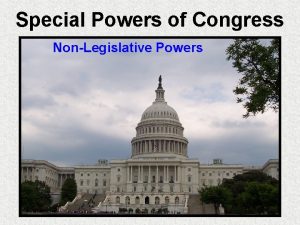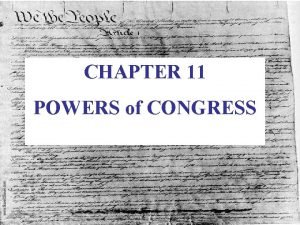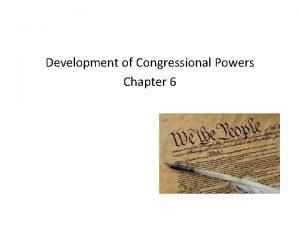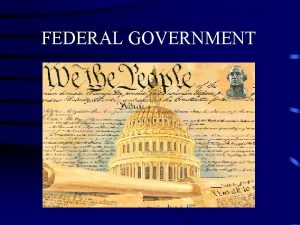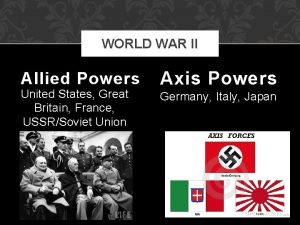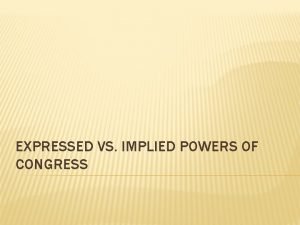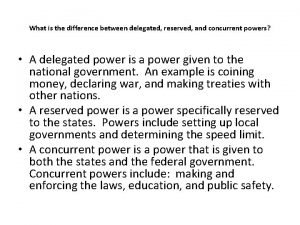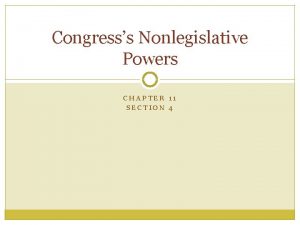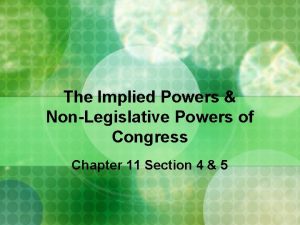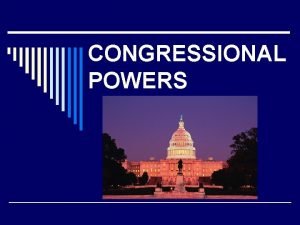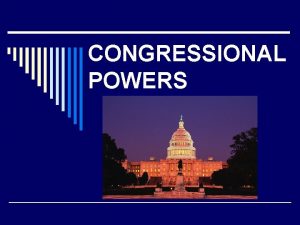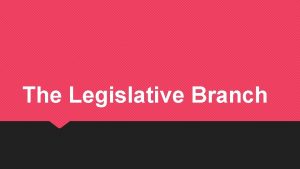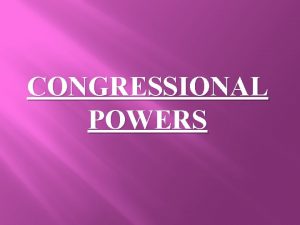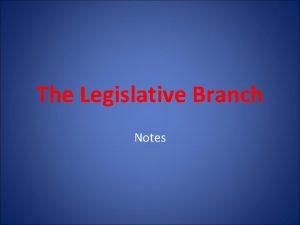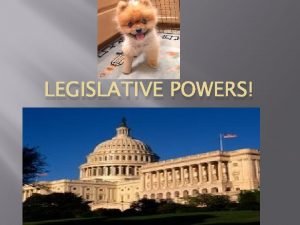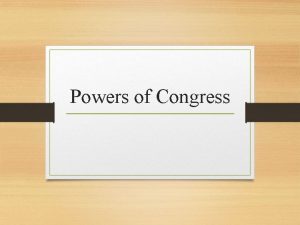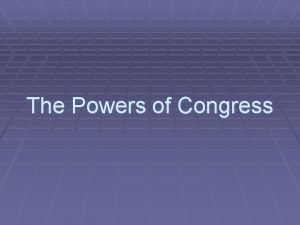Congressional Powers Types of Powers Legislative or NonLegislative















- Slides: 15

Congressional Powers

Types of Powers • Legislative or Non-Legislative • Expressed or Implied • Investigative • Oversight

Constitutional Powers Founding Fathers intended for Congress to play the central role in government.

Constitutional Powers “Expressed Powers” (also called “Enumerated Powers”) “Implied Powers” (from the “Necessary and Proper Clause”) See page 159 in your textbook.

Constitutional Powers

Powers Denied to Congress • Cannot violate Bill of Rights • Cannot suspend “writ of habeas corpus” (get out of jail to go to court) • Cannot pass “bills of attainder” (if convicted, can take freedom and all of your possessions) • Cannot pass ex post facto laws (retroactive laws)

Legislative Powers Taxing and Spending Power – Power to levy taxes – Provide for general welfare of nation Remember: All revenue bills must originate in the House of Representatives

Legislative Powers • Power to borrow money • Power to coin money • Power to regulate foreign commerce

Legislative Powers • Power to regulate interstate commerce – Banking – Air transportation – Water pollution – Minimum Wage issues – Civil Rights issues

Legislative Powers • Power to regulate interstate commerce – Banking – Air transportation – Water pollution – Minimum Wage issues – Civil Rights issues Heart of Atlanta Motel v. U. S.

Moreton Rolleston Jr. , owner of the Heart of Atlanta

Legislative Powers Foreign Policy Powers • Create and maintain military • Approve treaties • Declare war

Non-Legislative Powers • Power to choose the President (if no one gets a majority of the Electoral College) • Power to replace the President and VP (Presidential disability or resignation) • • Power of impeachment (President and judges) Power of confirmation (appointees) Power of ratification (treaties) Power to amend the Constitution

Investigation Power Can investigate: • Situations and events • People • Members of Congress can act much like a court.

Oversight Power • This is the authority to continually review how effectively the Executive Branch is carrying out the laws passed by Congress. • Reality: Oversight is uneven because politics become involved.
 What is a non legislative power of congress
What is a non legislative power of congress 5 non legislative powers of congress
5 non legislative powers of congress All of the following are nonlegislative powers except
All of the following are nonlegislative powers except Implied powers of congress
Implied powers of congress Development of congressional powers chapter 6 answer key
Development of congressional powers chapter 6 answer key Development of congressional powers chapter 6 answer key
Development of congressional powers chapter 6 answer key Non legislative powers of congress
Non legislative powers of congress Non legislative powers of congress
Non legislative powers of congress Implied power
Implied power Legislative branch powers
Legislative branch powers Was the united states on the axis powers or allied powers?
Was the united states on the axis powers or allied powers? The central powers ww1
The central powers ww1 Implied powers vs expressed powers
Implied powers vs expressed powers Enumerated powers vs expressed powers
Enumerated powers vs expressed powers Difference between delegated and reserved powers
Difference between delegated and reserved powers Presidential powers informal or implied powers
Presidential powers informal or implied powers

